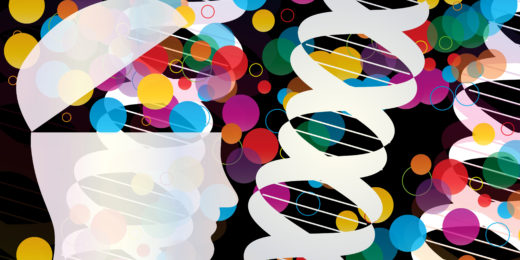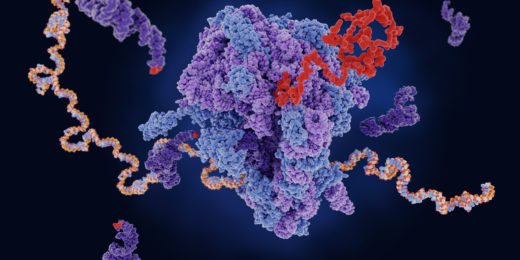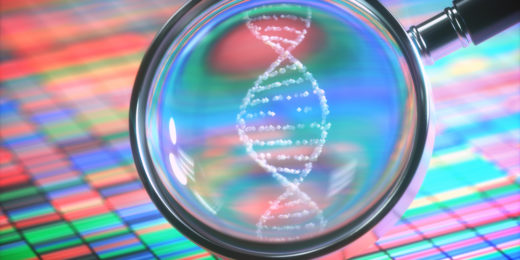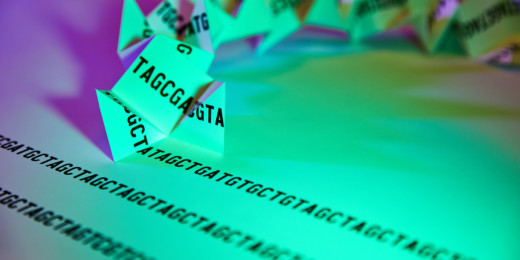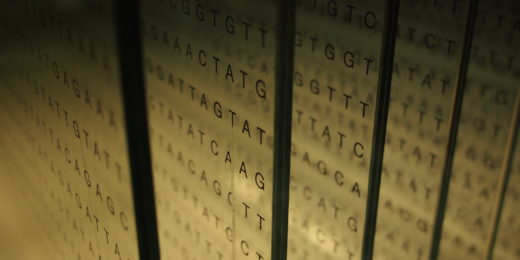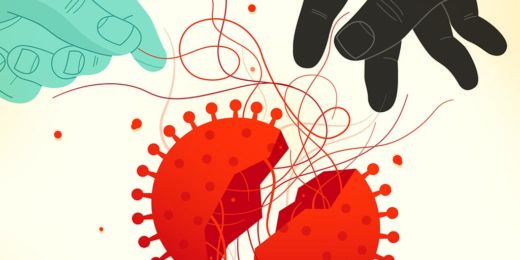Researchers are searching large, diverse genetic databases to better understand the roots of diabetes in diverse populations.
Category: Genetics
Clues from Down syndrome hint at new Alzheimer’s finding
Researchers at Stanford Medicine have discovered a possible molecule connection between Down syndrome and Alzheimer's disease.
How does CRISPR help researchers study the heart?
Cardiology researchers at Stanford Medicine are increasingly turning to CRISPR to understand -- and maybe one day -- treat heart disease.
What’s the role of protein machines in diseases of aging?
Researchers find that the ribosome, a protein-making machine, may contribute to diseases of aging, such as Alzheimer's and Parkinson's.
Top 5 Scope stories of 2021
From the genetics of COVID-19, to cancer, to tonsils, this story is a wrap up of Scope's most read stories of 2021.
New genetics tool helps guide dosages of tuberculosis drug
Researchers design a test that predicts how quickly patients metabolize a standardized tuberculosis drug, aiming to increase efficacy.
Tracking the progression of liver disease in a dish
Stanford Medicine researchers are creating models of livers in a dish -- organoids -- to better understand liver disease.
How to beat cancer? Find the genes that help it hide
Stanford Medicine researchers conducted an experiment to find new genes that, when knocked out, boost immune cells' cancer-killing ability.
From fish to finch — learning how to adapt to climate change
Tiny fish evolve rapidly and predictably by diving into a 'genetic toolbox' shared with other organisms including Darwin's finches.
Genetics could explain why some people get severe COVID-19
Stanford Medicine researchers and others discovered 13 genetic signatures that are closely linked to an increased risk for severe COVID-19.
Experts: It’s time to eliminate race-based medicine in patient care
Using racial classifications to guide care could result in poorer health outcomes for non-white patients, medical professionals say.
Disease detective tells stories of mystery diseases in new book
Euan Ashley, professor of medicine and genetics, tells the stories of his patients with rare or mystery diseases through his new book, The Genome Odyssey.
Less is more? Focused genetic testing recommended for breast and ovarian cancers
Ovarian cancer genetic testing is underused and large gene panels lead to uncertain results, particularly for non-white patients, a Stanford Medicine study finds.
Take heed: Turn to the experts to interpret pharmacogenetic tests
In the burgeoning field of pharmacogenetics, adhering to expert-developed guidelines is increasingly important, a Stanford Medicine physician emphasizes.
Concussion: Could your genes increase your risk?
Stanford scientists have found two genes associated with concussion. Screening football players and military might identify those at higher risk.
Stanford Medicine researchers work to stop COVID-19
Stanford Medicine researchers are investigating SARS-CoV-2 to address the COVID-19 pandemic and ultimately help restore normalcy to society.



